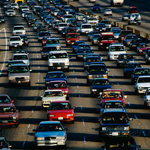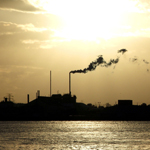Climate change




Over the last two hundred and fifty years, since industrialization began, the delicate balance in the earth's systems and atmosphere has been disturbed by pollution. One form of pollution is the release of the basket of greenhouse gases that are associated with the consumption of fossil fuels such as coal, oil and gas. Unfortunately in the 21st century these forms of energy now underpin most societies.
Modern life with all its conveniences like cheap air travel, centralised electrical power, endless gadgets, cheap inefficient housing, cars and mass production, in its current guise, is high carbon and is not sustainable. As we move into the 21st century, the reality of climate change is becoming clearer.
It is now beyond doubt that, with amongst other things the publication of the Inter-governmental Panel of Climate Change's Fourth Assessment Report, human activity is responsible for the release of vast amounts of carbon dioxide which are having a very negative impact on the planet that we live on. Moreover there has been a scientific consensus on this fact for over a decade.
The UK government's own position as outlined in the 2008 Climate Change Act has set a target of a 80 per cent cut on 1990 levels of carbon dioxide emissions by 2050 and many commentators state that this is 'too little too late'. If we are to avert runaway climate change by the latter half of the twenty first century, far more drastic action to the tune of around a 90 per cent cut by 2030 is required.
Whatever the target, whatever the timescale, this country, a low carbon country, will have a very different landscape. The Low Carbon Trust exists to promote the ideas and technologies that will enable us to make this transition.





